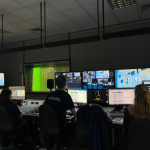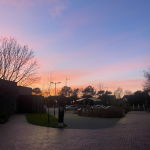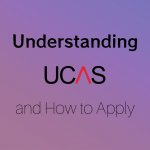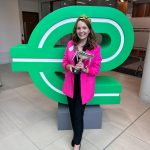 This summer I embarked on a two-week science research trip with three other students and two lecturers to Colombia in South America. Without doubt this was one of the best experiences of my life, as well as a great opportunity to develop skills for both professional employability and scientific research, and all thanks to doing my geography degree at BU.
This summer I embarked on a two-week science research trip with three other students and two lecturers to Colombia in South America. Without doubt this was one of the best experiences of my life, as well as a great opportunity to develop skills for both professional employability and scientific research, and all thanks to doing my geography degree at BU.
This placement was part of the SERT projects BU carries out within the SciTech faculty. They can last for a few days, a few weeks or maybe even months. They cover everything from heathland management right up to a research trip abroad, like the one I went on. These kinds of projects are growing at BU and are great opportunities for every SciTech student. Not only are they great placements, a compulsory part of SciTech degrees, but they also allow you to work with lecturers, learn a variety of new skills, see new places and learn new languages.

Our SERT trip involved a two week trip in Colombia which took us all around the country. The project had two key parts, one was to work with our partnering university out there, Universidad de EAFIT, on new research projects and university links, and the other was to evaluate the possibility of 40-week placement opportunities out in Colombia. These aims took us across Colombia, from the tropical forests of the Rio Claro nature reserve, where we are now looking at mapping tropical forest using GIS and creating anthropological research projects with the indigenous people of the jungle, to the Caribbean coastal area of Cartagena, where we studied areas of mangrove and geology.
This trip allowed the four students, including myself, to develop a range of personal and professional skills, which will prove to be useful for our own confidence as well as helping to grow our technical abilities as scientists. A key element of our roles as students out there was developing research projects that placement students from BU could go out to Colombia to carry out. We had to look at a variety of topics, with each student’s personal interest creating new project ideas. For instance, as a disaster specialist I wanted to look at the valuable swathes of mangrove forest that have helped stem flooding events in the northern parts of Colombia. This project also allowed us to sit in on important discussions and meetings, which in itself has given us experience in professional circumstances and how to act during these meetings. These are simple skills that could be invaluable in our future careers.
 However, the key to this project was the society it allowed us to see. We got fully involved in Colombia culture, and learnt a lot about it. We were shown the wonderful history of Colombia, the beautiful landscapes of it as well as the multitude of livelihoods. Combine this incredible experience of learning about an entirely new culture with the variety of skills we learned and contacts we made, and the trip proved massively successful for all, as well as life changing for many, including myself.
However, the key to this project was the society it allowed us to see. We got fully involved in Colombia culture, and learnt a lot about it. We were shown the wonderful history of Colombia, the beautiful landscapes of it as well as the multitude of livelihoods. Combine this incredible experience of learning about an entirely new culture with the variety of skills we learned and contacts we made, and the trip proved massively successful for all, as well as life changing for many, including myself.
By Louis Sherman









